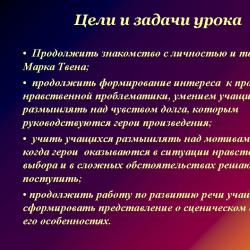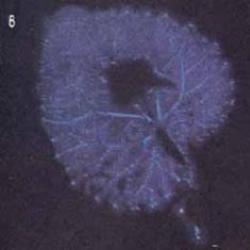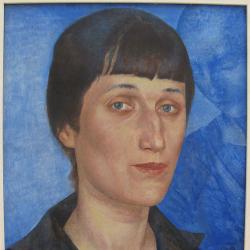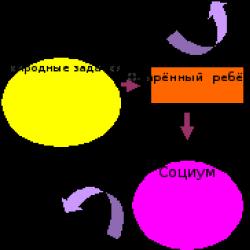I've gone crazy, oh strange boy. I'm crazy, oh strange boy I'm crazy, oh strange boy
Anna Andreevna Akhmatova
I've lost my mind, oh strange boy,
Wednesday at three o'clock!
Pricked my ring finger
A wasp ringing for me.
I accidentally pressed her
And it seemed she died
But the end of the poisoned sting
It was sharper than a spindle.
Will I cry for you, strange one,
Will your face make me smile?
Look! On the ring finger
So beautifully smooth ring.
The work was included in the debut book “Evening”, which was received with interest by the public. It is more expedient to consider it in the context of motifs characteristic of other poetic texts in the collection. The work “Love” presents different faces of strong feelings. The first of the metaphors is a snake curled up at the heart of the lyrical “I”. The image of love as a snake with a poisonous sting gives rise to a cross-cutting motif that plays an important role in the analyzed poem.
Already in the first quatrain, the motive of the bite appears, presented in a somewhat transformed form: the culprit of the event is not a snake, but a wasp. The information about the bite is preceded by another key confession. The lyrical heroine, defining the features of her condition, informs the addressee about her own mental transformation, called madness. It is noteworthy that the exact time of onset of the sudden “illness” is indicated. This circumstance hints at the leadership of the metaphorical plan of the lyrical narrative: the poetic confession concerns matters of the heart, strong movements of the soul. The sting of a wasp sting, the allegorical essence of which has not yet been revealed, is the cause of the experience.
The central quatrain cites the realistic circumstances of the episode, temporarily diverting the reader's attention from the metaphorical meaning. The fight against insects began “accidentally” for the lyrical “I.” The heroine, who pressed the uninvited “ringing” guest, thought that the wasp had died. However, the latter managed to sting the offender with a “poisoned” sting, which is “sharper than a spindle.”
Appeals to the lyrical addressee appear again in the final quatrain. With their help, a compositional ring is created that closes the poem. The lexical anaphora “strange” is the only characteristic of the portrait of the mysterious “boy” to whom the poetic text is addressed. The heroine encourages her chosen one to admire the “smooth ring” that flaunts right at the site of the bite.

Anna Akhmatova
The last couplet makes us take a fresh look at the semantic accents of the work. In this fragment, the main role is given to the metonymic image of the ring. It becomes a sign of crazy love, a painfully enthusiastic state, which unexpectedly turned into a hasty wedding.
The author deliberately does not clarify the addressee's position, leaving the reader in the dark about the circumstances of the lyrical situation. Whether we are talking about the natural outcome of passion or the tragedy of a love triangle, one thing is clear: the heroine is immersed in a world of feelings, dramatic, contradictory and powerful.
(Lyrics and lyrics)
Wednesday at three o'clock!
Pricked my ring finger
A wasp ringing for me.
I accidentally pressed her
And it seemed she died
But the end of the poisoned sting
It was sharper than a spindle.
Will your face make me smile?
So beautifully smooth ring.
1911
Anna Akhmatova
(from the film Captain's Children)
Translation of the song - I've lost my mind, oh strange boy (to verses by A. Akhmatova)
(Translation of the lyrics of the song Karina Gabriel - I've lost my mind, oh strange boy (to the verses of A. Akhmatova))
Pricking your finger ring
I"m a wasp.
I accidentally pressed
And, it seemed, she died,
Smile doesn't me your face?
Look! The ring on her finger
So beautifully smooth ring.
1911
Anna Akhmatova
(from the film The captain's children)
2. Lyrics of the song - I've lost my mind, oh strange boy (to the verses of A. Akhmatova)
(Lyrics and lyrics of the song Karina Gabriel - I've lost my mind, oh strange boy (to the verses of A. Akhmatova))I've lost my mind, oh strange boy,
Wednesday at three o'clock!
Pricked my ring finger
A wasp ringing for me.
I accidentally pressed her
And it seemed she died
But the end of the poisoned sting
It was sharper than a spindle.
Will I cry for you, strange one,
Will your face make me smile?
Look! On the ring finger
So beautifully smooth ring.
2. Translation of the song - I've lost my mind, oh strange boy (to the verses of A. Akhmatova)
(Translation of the lyrics of the song Karina Gabriel - I've lost my mind, oh strange boy (to verses by A. Akhmatova) into English #english version, in English)I'm mad about the boy strange
On Wednesday, in three hours!
Pricking your finger ring
I"m a wasp.
I accidentally pressed
And, it seemed, she died,
But the end of the poisoned sting
Was the worst of the spindle.
About you I"ll pay a strange,
Smile doesn't me your face?
Look! The ring on her finger
So beautifully smooth ring.
View popular lyrics and translations Karina Gabriel:
- Karina Gabriel - I've lost my mind, oh strange boy (A. Akhmatova) from the film "The Captain's Children"
- Karina Gabriel - I've lost my mind, oh strange boy (to verses by A. Akhmatova)
- Karina Gabriel - I'm crazy, oh, strange boy (Akhmatova)
Do you know who sings the song I've lost my mind, oh strange boy (to the verses of A. Akhmatova)? The answer is simple, this is Karina Gabriel. Finding words to music, song lyrics and sometimes even chords is not difficult here; usually, to find a song by words, you need to enter a couple of words from the song in the search and press the search button. You can now use text and the words of this song in karaoke or just sing along by turning on your mp3 player. There is no need to try to translate the song into Russian or English, song translation Karina Gabriel - I've lost my mind, oh strange boy (to verses by A. Akhmatova) is already on textsong2.ru, and download the lyrics of the song i.e. lyrics You can select it with the mouse.
Views for all time by Karina Gabriel - I've lost my mind, oh strange boy (to the verses of A. Akhmatova):
“I’ve lost my mind, oh strange boy...” Anna Akhmatova
I've lost my mind, oh strange boy,
Wednesday at three o'clock!
Pricked my ring finger
A wasp ringing for me.I accidentally pressed her
And it seemed she died
But the end of the poisoned sting
It was sharper than a spindle.Will I cry for you, strange one,
Will your face make me smile?
Look! On the ring finger
So beautifully smooth ring.
Analysis of Akhmatova’s poem “I’ve gone crazy, oh strange boy...”
The work was included in the debut book “Evening”, which was received with interest by the public. It is more expedient to consider it in the context of motifs characteristic of other poetic texts in the collection. The work “Love” presents different faces of strong feelings. The first of the metaphors is a snake curled up at the heart of the lyrical “I”. The image of love as a snake with a poisonous sting gives rise to a cross-cutting motif that plays an important role in the analyzed poem.
Already in the first quatrain, the motive of the bite appears, presented in a somewhat transformed form: the culprit of the event is not a snake, but a wasp. The information about the bite is preceded by another key confession. The lyrical heroine, defining the features of her condition, informs the addressee about her own mental transformation, called madness. It is noteworthy that the exact time of onset of the sudden “illness” is indicated. This circumstance hints at the leadership of the metaphorical plan of the lyrical narrative: the poetic confession concerns matters of the heart, strong movements of the soul. The sting of a wasp sting, the allegorical essence of which has not yet been revealed, is the cause of the experience.
The central quatrain cites the realistic circumstances of the episode, temporarily diverting the reader's attention from the metaphorical meaning. The fight against insects began “accidentally” for the lyrical “I.” The heroine, who pressed the uninvited “ringing” guest, thought that the wasp had died. However, the latter managed to bite the offender with a “poisoned” sting, which is “sharper than a spindle.”
Appeals to the lyrical addressee appear again in the final quatrain. With their help, a compositional ring is created that closes the poem. The lexical anaphora “strange” is the only characteristic of the portrait of the mysterious “boy” to whom the poetic text is addressed. The heroine encourages her chosen one to admire the “smooth ring” that flaunts right at the site of the bite.
The last couplet makes us take a fresh look at the semantic accents of the work. In this fragment, the main role is given to the metonymic image of the ring. It becomes a sign of crazy love, a painfully enthusiastic state, which unexpectedly turned into a hasty wedding.
The author deliberately does not clarify the addressee's position, leaving the reader in the dark about the circumstances of the lyrical situation. Whether we are talking about the natural outcome of passion or the tragedy of a love triangle, one thing is clear: the heroine is immersed in a world of feelings, dramatic, contradictory and powerful.
Anna Akhmatova's poem “I've gone crazy, oh strange boy” is filled with metaphors that hide the real meaning of the lines. The verse was written in 1911 and is included in the first collection of poems by the poetess “Evening,” which was published shortly after her wedding to Gumilev (he, by the way, helped in its publication).
Game of metaphors
In the poem, the mysterious heroine, followed by Akhmatova herself, addresses the boy (Gumilev), calling him strange and telling him about a wasp bite on his ring finger. Metaphors begin immediately - “three o’clock”, “ring finger”, “poisoned sting”, “spindle”. At the end of the poem, a “smooth ring” will emerge, which is nothing more than a wedding ring and is put on the ring finger.
The string of metaphors is easily justified by the “madness” that the heroine complains about at the beginning of the poem. If you look between the lines and understand in your own way the leapfrog of metaphors, it becomes clear that three o’clock is the Holy Trinity at a wedding, the ring finger is a symbol of marriage, the spindle is the routine of life, and the poisoned sting is the adversity on the path of marriage.
wasp sting
In the story, the heroine accidentally presses a wasp to her finger, and it bites her, that is, sticks a sting into her finger. Translated from Akhmatova’s language, this means that an absurd mistake in the family leads to adversity and can turn into a crack in the path of marital happiness.
Pricked my ring finger
A wasp ringing for me.
The mistake was small and it seemed that there would be no significant consequences from it, but the sting remained in the ring finger - the crack in family life was obvious. Let’s not forget that a little time has passed since Akhmatova’s wedding to Gumilyov; Anna Andreevna has no serious experience of marriage, so it’s difficult to solve problems.
The theme of the poem, hidden behind a string of masks and metaphors, is the complexity of family life, when mistakes leave a mark for a long time, and correcting them is problematic.
At the end of the poem there is noticeable hope:
So beautifully smooth ring.
Conclusion
The ring is still on the ring finger, where it belongs on the hand of a married woman, which means there is still hope for restoring the relationship. In 1911, the first disagreements between Akhmatova and Gumilyov began, but at that time Anna Andreevna was not eager to destroy the family, although disappointment was already knocking on the door of her soul.
The verse “I’ve lost my mind...” was written, most likely, in the wake of another disagreement with her husband, when the scales of trust in the family are just beginning to tip towards separation, but Anna hopes to restore the sincerity and depth of the relationship.
I've lost my mind, oh strange boy,
Wednesday at three o'clock!
Pricked my ring finger
A wasp ringing for me.
I accidentally pressed her
And it seemed she died
But the end of the poisoned sting
It was sharper than a spindle.
Will I cry for you, strange one,
Will your face make me smile?
Look! On the ring finger
So beautifully smooth ring.







